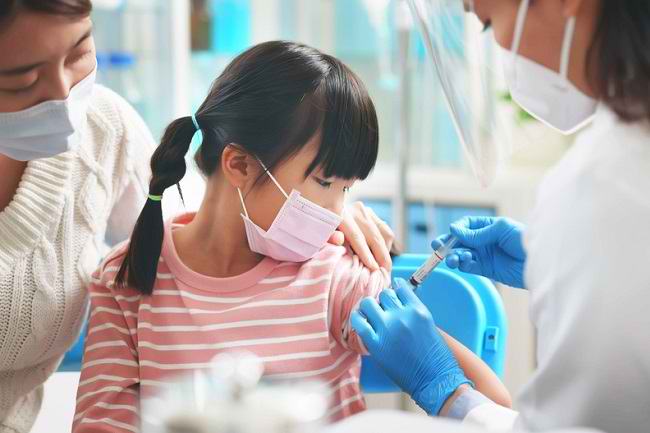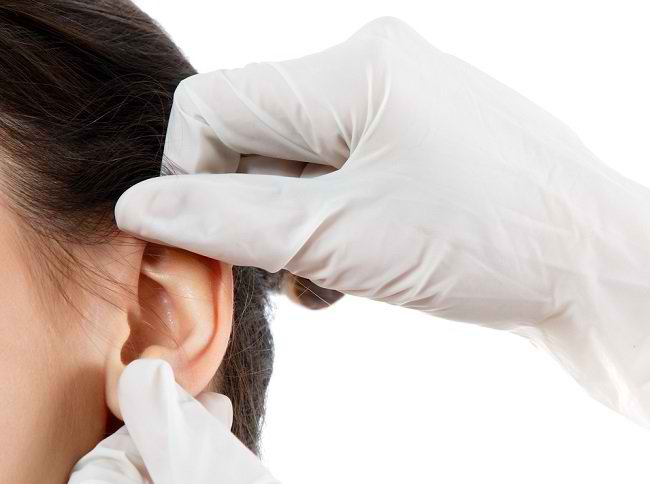The effects of drugs on babies in the womb cannot be underestimated. Drug use by pregnant women has the potential to cause various adverse effects on the fetus, ranging from low baby weight, impaired infant development, to death for the mother and fetus.
When pregnant, every substance that enters the body of a pregnant woman will flow through the placenta and the umbilical cord to the baby. If pregnant women eat healthy foods, babies will feel the nutritional benefits of food. However, this also means that babies can become 'drug users' if pregnant women use drugs.

Various Effects of Drugs on the Unborn Baby
Even though the levels are small, babies can feel the negative effects of drugs if pregnant women take illegal drugs. This effect can hurt the baby from the time he was in the womb until birth.
Here are the types of drugs and their effects on babies:
1. Heroin
Heroin is included in one of the illegal drugs that can be consumed by the fetus through the placenta. Because of its addictive nature, babies in the womb can also become dependent on this drug and experience withdrawal symptoms. This condition is known as neonatal abstinence syndrome (NAS).
Symptoms of NAS in newborns include excessive crying, fever, seizures, slow weight gain, diarrhea, and vomiting. This condition can also cause death in infants.
2. Cocaine
Babies of mothers who used cocaine during pregnancy were at higher risk of being born prematurely and having lower birth weight, head circumference, and length. In addition, the use of cocaine during pregnancy can also increase the risk of miscarriage that occurs suddenly.
3. Marijuana
Marijuana or marijuana is one of the most common illicit drugs. Although many people think marijuana is safe to use, there is plenty of research to support that taking this drug during pregnancy causes low birth weight and premature birth.
In addition, a study also reported that some babies born to pregnant women who use marijuana have impaired development of the nervous system, which is characterized by visual disturbances, high-pitched cries, and body shaking.
4. Methadone
Methadone is actually an opioid pain reliever, but it can still cause dependence. Although they don't have as much effect as opioids like heroin, they can also cause newborns to experience withdrawal symptoms, such as diarrhea, stomach cramps, skin sores, and crying incessantly.
5. Methamphetamine
The use of methamphetamine or methamphetamine during pregnancy also causes many adverse effects on the fetus. These include increasing the risk of premature birth, placental abruption, miscarriage, low birth weight, and abnormalities of the baby's heart and brain.
6. PCP & LSD
Using hallucinogenic drugs such as PCP & LSD during pregnancy can increase the risk of pregnant women hurting themselves and hurting their babies too. In addition, hallucinogens can also make babies born with low weight, congenital abnormalities, and brain damage.
How to Handle Pregnant Drug Users
If pregnant women use drugs, consult with a gynecologist and ask how to stop using drugs safely, without causing dangerous withdrawal symptoms.
Be honest with the doctor or midwife that pregnant women are drug users so that they can provide care and attention according to the needs of pregnant women and their fetuses.
As for women who use drugs but are planning a pregnancy, it is highly recommended to get medical help and counseling before becoming pregnant. This is important to prevent serious disorders during pregnancy, during childbirth, and after delivery, as well as to prevent abnormalities in the fetus.
Pregnancy is a gift that needs to be taken care of as well as possible. So, as much as possible make sure the body is in good health and protected from harmful substances during pregnancy. Therefore, always instill a healthy lifestyle by avoiding drug abuse.
If you still have questions about the effects of drugs on the baby in the womb, don't hesitate to consult a doctor so that pregnant women can stay away from things that can endanger the safety of themselves and the fetus.









